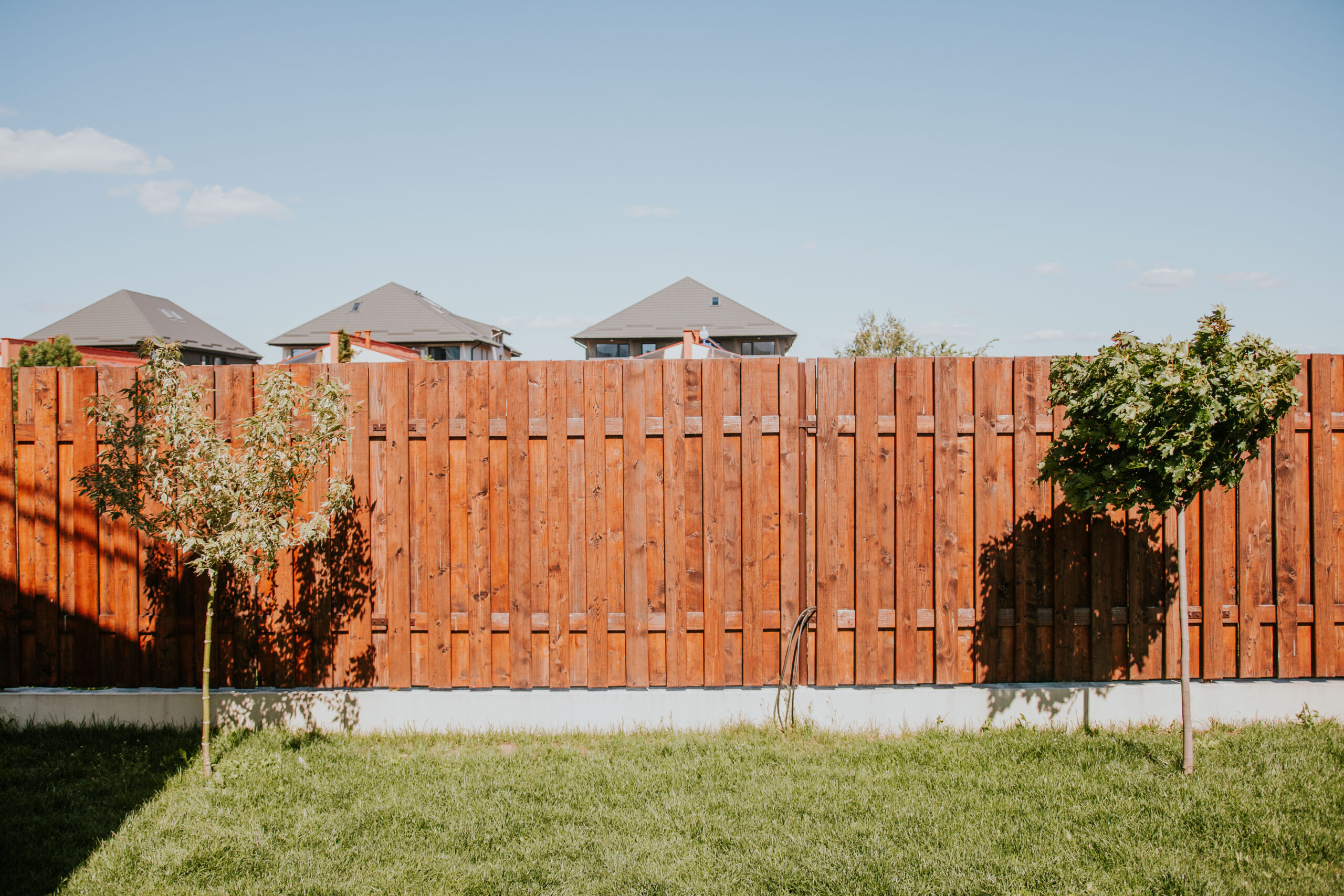All Categories
Featured

Amongst the most popular choices, wood, vinyl, and light weight aluminum each deal special advantages and disadvantages. Here's a breakdown of the pros and disadvantages of these 3 typical fence materials.
Timber Secure Fencing. Timber fence has actually been a timeless selection for property owners as a result of its all-natural appeal and convenience.
Pros:. Aesthetic Charm: Timber uses a classic and warm look that complements a selection of architectural styles. Adjustable: It can be repainted, tarnished, or cut right into special layouts to suit individual choices. Economical: Initially, wood secure fencing can be a cost effective choice compared to various other products. Eco-Friendly: Wood is a renewable energy and can be sustainably sourced. Cons:. High Maintenance: Timber requires normal securing, staining, or paint to stop rot, insect damage, and weathering. Sturdiness Concerns: Without proper care, wood can warp, crack, or degeneration over time, especially in locations with high humidity. Shorter Life-span: A wood fence normally lasts 10-20 years, depending upon the kind of timber and level of maintenance. Timber is optimal for those who value a standard appearance and want to dedicate to its maintenance.
Plastic Secure Fencing. Vinyl is a modern-day, low-maintenance fence choice that has grown in appeal over the last few years.

Pros:. Reduced Upkeep: Vinyl does not need painting, discoloration, or securing and can be quickly cleansed with soap and water. Climate Resistant: It endures extreme climate condition without rotting, rusting, or bending. Lasting: Vinyl fencings can last 20-30 years with very little upkeep. Range of Styles: Readily available in several shades, styles, and textures, some vinyl choices resemble the look of wood. Cons:. Higher Upfront Expense: Plastic fencing can be more pricey originally contrasted to timber. Brittleness in Winter: In severe chilly, plastic might fracture or come to be breakable. Limited Repair works: Individual panels can be difficult to replace, requiring mindful matching to the existing fencing. Vinyl is best fit for house owners seeking a resilient, low-maintenance option with modern-day visual appeals.
Light Weight Aluminum Fencing. Aluminum secure fencing is a lightweight and resilient choice, usually chosen for its contemporary look and convenience.
Pros:. Rust-Resistant: Light weight aluminum doesn't corrosion, making it a superb selection for humid or damp environments. Low Upkeep: Calls for marginal maintenance and is very easy to tidy. Resilient: While light-weight, light weight aluminum is solid sufficient to endure lots of environmental conditions. Long Life-span: Can last numerous years without significant wear or deterioration. Selection of Styles: Offers a stylish and sleek look, commonly made use of for attractive or ornamental purposes. Disadvantages:. Greater Price: The preliminary financial investment for aluminum fencing is more than wood or vinyl. Less Privacy: Aluminum fences are frequently developed with open pickets, making them much less effective for personal privacy. Prone to Damages: Although resilient, aluminum can be nicked by solid impacts. Aluminum is ideal for those looking for an elegant, durable option that needs very little care.
Making the Right Option. Each fence material-- plastic, aluminum, and timber-- offers unique advantages and disadvantages. Your choice ought to rely on your certain priorities, such as budget, maintenance preferences, environment, and aesthetic goals:
Pick timber if you enjoy a conventional look and do not mind normal upkeep. Go with plastic if you desire a low-maintenance, weather-resistant fencing with contemporary charm. Select light weight aluminum if you prioritize resilience, rust resistance, and a sleek style. By weighing these pros and disadvantages, you can pick a fence material that boosts your building while satisfying your functional needs.
Latest Posts
Discover Exclusive Auto Repair Specials in Chicago at Montclare Auto Repair
Published en
1 min read
Uncover Reduce Expenses on Car Maintenance with Montclare Auto Repair’s Limited-Time Deals
Published en
1 min read
How Regular Vehicle Maintenance at Montclare Auto Repair Saves You Money
Published en
1 min read
More
Latest Posts
Discover Exclusive Auto Repair Specials in Chicago at Montclare Auto Repair
Published May 27, 25
1 min read
Uncover Reduce Expenses on Car Maintenance with Montclare Auto Repair’s Limited-Time Deals
Published May 27, 25
1 min read
How Regular Vehicle Maintenance at Montclare Auto Repair Saves You Money
Published May 26, 25
1 min read